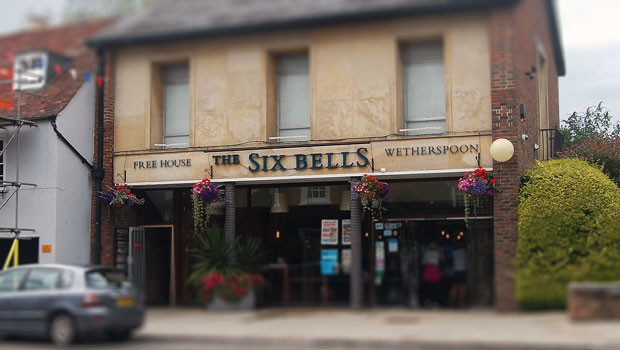JD Wetherspoon sales inch closer to pre-Covid levels

Wetherspoon (J.D.)
603.00p
17:15 23/12/24
JD Wetherspoon said in an update on Wednesday that like-for-like sales in the first 11 weeks of its fourth quarter were 0.4% below the same pre-pandemic period in 2019 - an improvement compared to the prior quarter, when sales were down 4%.
FTSE 250
20,419.09
17:09 23/12/24
FTSE 350
4,471.06
17:09 23/12/24
FTSE All-Share
4,428.73
16:44 23/12/24
Travel & Leisure
9,170.51
17:09 23/12/24
The FTSE 250 pub operator said sales of spirits were up 4.4%, cocktails up 18.6%, food up 2.1%, hotel rooms up 8.4%, and fruit machines ahead 16.6%, while draught ales, lagers and ciders - historically the largest contributors to pub sales - were 8% below 2019.
It said its 48 ‘Lloyds’ pub-cum-nightclub premises had sales 6.0% higher in the period.
Contrary to expectations, sales in major city centres apart from London were stronger than suburban locations or smaller towns.
For example, Wetherspoon said sales in the latest quarter in central Cardiff were ahead 14.9%, while they rose 13.8% in Newcastle, 9.5% in Nottingham, 8.6% in Glasgow, 8.5% in Bristol, 8.3% in Coventry, and 7.0% in Manchester.
The company said it had “invested heavily” in labour, repairs and marketing following the lifting of Covid-19 restrictions in February, in a bid to strengthen its position for the 2023 financial year.
Losses for the 12 months ending 31 July would thus be higher than expected, the board said, at £30m on a post-IFRS 16 basis, or £23m on a pre-IFRS basis.
The firm said that, although sales now matched 2019, labour costs were “far higher”, adding that with “minor exceptions” it was now fully staffed.
Although repairs were reduced to “minimal levels” during lockdowns, there had been an element of “catch-up”, meaning repair costs for the full financial year would be around £99m, compared to £76.9m in 2019.
Marketing costs also increased “substantially” since changes in restrictions necessitated, for example, new menus.
Wetherspoon said it had invested £128m in the acquisition of freehold reversions of 48 pubs since 2019, of which it was previously the tenant, bringing the number of freehold pubs to 582, or 68.3% of its estate.
In addition, the company has also "regeared" the leases of 15 pubs in the period, usually at lower rents than previously applied, with fixed, five-yearly rent reviews “significantly below” current inflation rates.
Of the company's 270 leasehold pubs, 116 now had fixed rental increases.
The company said it had contracts for energy supplies until the end of the 2023 financial year, at fixed prices predating the current spike in energy costs.
As it previously indicated, Wetherspoon had long-term contracts for many bar and food purchases, which the board said would “moderate” the “highly inflationary” cost increases being widely felt.
It also reiterated that it had fixed the floating rate interest cost of £770m of its bank loans, using swaps, at between 1.02% and 1.61% until November 2031.
Wetherspoon said it believed its overall costs would increase by “less than the current rate of inflation” in the 2023 financial year.
“When Covid-19 struck in early 2020, most governments, with the exception of Sweden, abandoned their WHO-approved pandemic plans and copied China's approach by ‘locking down’,” said the company’s outspoken chairman Tim Martin.
“There have been many unintended consequences - large numbers of people, as has been widely reported, have left the workforce, mainly through early retirement.
“Many people now work from home, rather than from offices, which has had a significant impact on transport and hospitality businesses, among other examples.”
Martin said the “fear factor” used by governments to encourage compliance with lockdowns and restrictions had “lingering after-effects”, claiming many people were “remaining cautious” about leaving their homes.
“Inflation, mainly a result of the ‘money printing’ which was activated by governments and central banks to finance lockdowns, has proved to be far higher and more intractable than anyone anticipated.
“Wetherspoon has tried to take a long-term approach to these issues, investing heavily in the workforce, in buildings, in marketing and in contracts with landlords and suppliers, which will hopefully create a solid base for future growth.
“The company remains cautiously optimistic about future prospects.”
Wetherspoon said it would release its preliminary results for the year ending 31 July on 7 October.
At 0821 BST, shares in JD Wetherspoon were down 6.43% at 589.5p.
Reporting by Josh White at Sharecast.com.